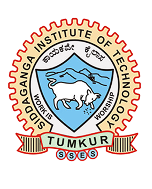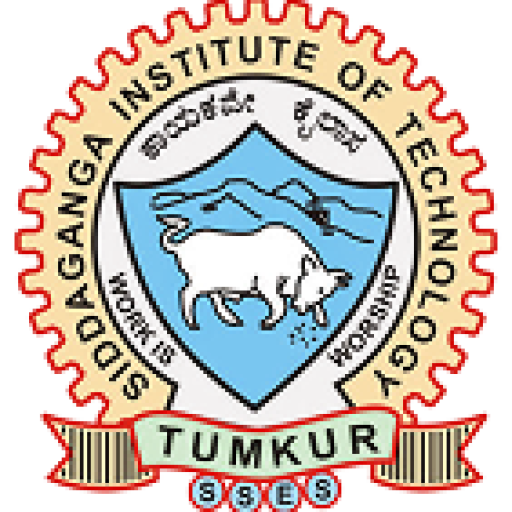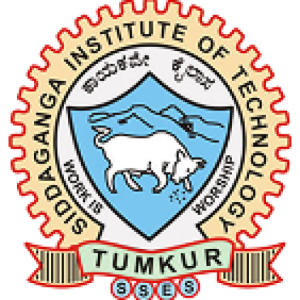Department of Nanotechnology
Overview
The Department of Nanotechnology at Siddaganga Institute of Technology (SIT) focuses on nanoscale materials, nanofabrication, nanomedicine, and quantum nanoscience. The department integrates multidisciplinary research, innovation, and industry collaboration to develop cutting-edge solutions in electronics, healthcare, energy, and environmental applications.
Program Details
Undergraduate Program:
B.E. in Nanotechnology
- Duration: 4 Years
The B.E. program provides in-depth knowledge in nanomaterials, quantum physics, nanoelectronics, nanomedicine, and nanofabrication techniques, preparing students for careers in semiconductors, biotechnology, material science, and research.
Postgraduate Programs:
M.Tech in Nanoscience and Technology
Advanced study in nanomaterials, nanoelectronics, bio-nanotechnology, and quantum computing.
Ph.D.
The department offers research opportunities in nano-optics, molecular electronics, nanocomposites, and biomedical nanotechnology.
Vision & Mission
Vision
“To be a global leader in nanotechnology education and research, driving innovations in nanoscale science and engineering.”
Mission
To develop professionals with expertise in nanoscience and nanotechnology applications.
To promote research and innovation in emerging nanoscale technologies.
To collaborate with industries for real-world applications and skill enhancement.
Student Life & Activities
Workshops & Seminars – Regular events on nanotechnology advancements and quantum materials.
Technical Clubs – Research-driven clubs focused on AI-driven nanotech and nanomedicine.
Industrial Visits – Exposure to real-world nanotech applications.




Infrastructure & Facilities
The department is equipped with cutting-edge computing infrastructure:
Innovation Labs – Dedicated spaces for research and development in nanomaterials, AI-driven nanotechnology, and molecular engineering.
High-Tech Computer Labs – Equipped with state-of-the-art hardware and software tools for nanotechnology modeling, quantum computing, and material simulations.
Advanced Software Environments – Provides access to specialized platforms for nano-simulations, AI in nanotechnology, and quantum modeling.
Cybersecurity & Networking Facilities – Hands-on labs for data security in nanotech applications.
Cloud & Virtualization Resources – Offers real-world exposure to cloud-based simulations and big data analytics in nanotechnology.
Remote Access & Virtual Labs – Enables students to conduct research and simulations remotely, ensuring flexibility in learning.




Faculty
The department has highly qualified faculty members specializing in nanophotonics, quantum materials, bio-nanotechnology, and molecular electronics. Faculty members actively engage in research and industry collaborations.
Academic Programs
Undergraduate Program:
B.E. in Nanotechnology – A comprehensive 4-year program covering nanomaterials, nanoelectronics, nanomedicine, and quantum nanoscience, preparing students for careers in advanced technology sectors.
Postgraduate Program:
M.Tech in Nanoscience and Technology – A specialized program focusing on nanofabrication, molecular electronics, and biomedical nanotechnology.
Ph.D. Program:
Research opportunities in nano-optics, AI-driven nanotechnology, quantum materials, and bio-nanotechnology.
Program Educational Objectives (PEOs) - UG
Graduates will:
Apply nanoscale principles to develop innovative solutions in electronics, healthcare, and materials science.
Engage in research and technological advancements in nanotechnology.
Exhibit critical thinking, teamwork, and leadership skills.
Contribute to sustainable and advanced nanotechnological developments.
Program Outcomes (POs) - UG
Graduates will be able to:
Design and develop nanomaterials and nanodevices for industrial applications.
Implement nano-fabrication techniques for advanced materials and biomedical applications.
Conduct research in quantum nanoscience and nanoelectronics.
Exhibit effective communication and teamwork skills.
Commit to lifelong learning and professional ethics.
Industry Collaboration & Placement
The department has strong industry partnerships, providing students with internships, projects, and placements in leading companies, including:
IBM Research
Intel
Tata Nanotechnology Division
Reliance Life Sciences
ISRO
DRDO
Achievements & Recognition
Recognized for breakthrough research in nanophotonics and nanomedicine.
75% of students secure placements in top industries, while others pursue higher studies or research.
Faculty and students have published research papers in Nature, IEEE, and Elsevier journals.
Alumni Success
Our alumni work in leading research institutions, R&D labs, and tech industries, contributing to advancements in nanoelectronics, biomedicine, and AI-driven nanotechnology.
Admissions
Admissions for B.E. in Nanotechnology are available through CET, COMED-K, and JEE Mains. Postgraduate admissions are based on academic qualifications and research interests. For more details, visit the Admissions Page.


